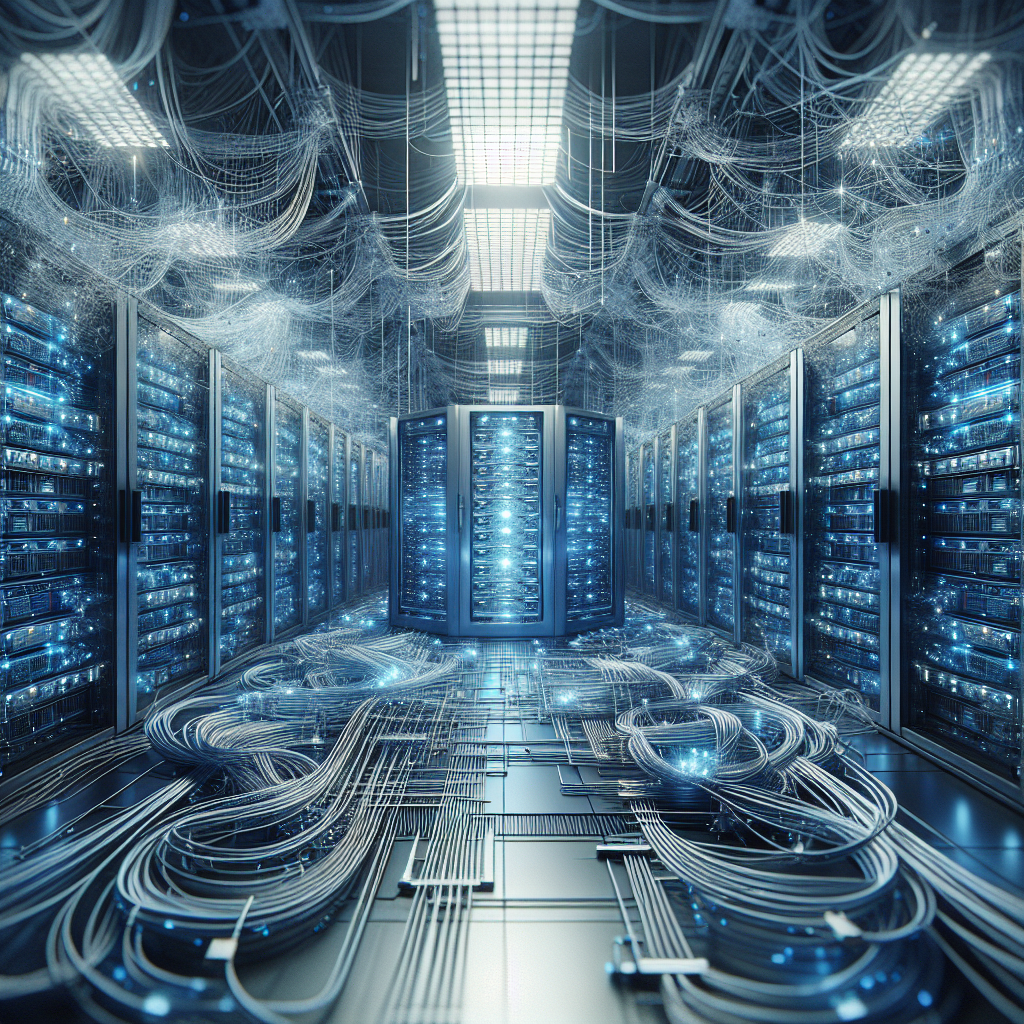Your cart is currently empty!
Data Center Network Infrastructure: The Backbone of Modern IT Infrastructure

Data centers are the backbone of modern IT infrastructure, serving as the central hub for storing, processing, and distributing data. Data center network infrastructure plays a crucial role in ensuring that these operations run smoothly and efficiently.
The network infrastructure of a data center refers to the physical and virtual components that enable communication and data transfer between servers, storage devices, and other connected devices within the facility. This infrastructure includes routers, switches, firewalls, load balancers, and other networking equipment that facilitate the flow of data across the network.
One of the key components of data center network infrastructure is the network topology, which defines the layout and interconnection of devices within the data center. Common network topologies used in data centers include star, mesh, and tree topologies, each offering different levels of scalability, redundancy, and performance.
Another important aspect of data center network infrastructure is network security. With the increasing number of cyber threats and data breaches, data centers must implement robust security measures to protect sensitive information. This includes firewalls, intrusion detection and prevention systems, encryption, and access control mechanisms to safeguard the network from unauthorized access and malicious attacks.
Scalability is also a critical factor in data center network infrastructure. As data volumes continue to grow and technology evolves, data centers must be able to scale their network infrastructure to accommodate increasing demands for bandwidth, storage, and computing power. This requires the use of high-performance networking equipment and technologies that can support high-speed data transfer and low latency.
Reliability and redundancy are essential considerations in data center network infrastructure. Downtime can be costly for businesses, so data centers must have redundant networking components and failover mechanisms in place to ensure continuous operation in the event of hardware failures or network disruptions.
The emergence of cloud computing and virtualization has further transformed data center network infrastructure. Software-defined networking (SDN) and network virtualization technologies allow data center operators to dynamically allocate resources, optimize network performance, and streamline management processes.
In conclusion, data center network infrastructure is the backbone of modern IT infrastructure, enabling data centers to support the growing demands of digital businesses. By investing in robust network infrastructure, data centers can ensure high performance, security, scalability, and reliability to meet the needs of today’s data-driven economy.

Leave a Reply